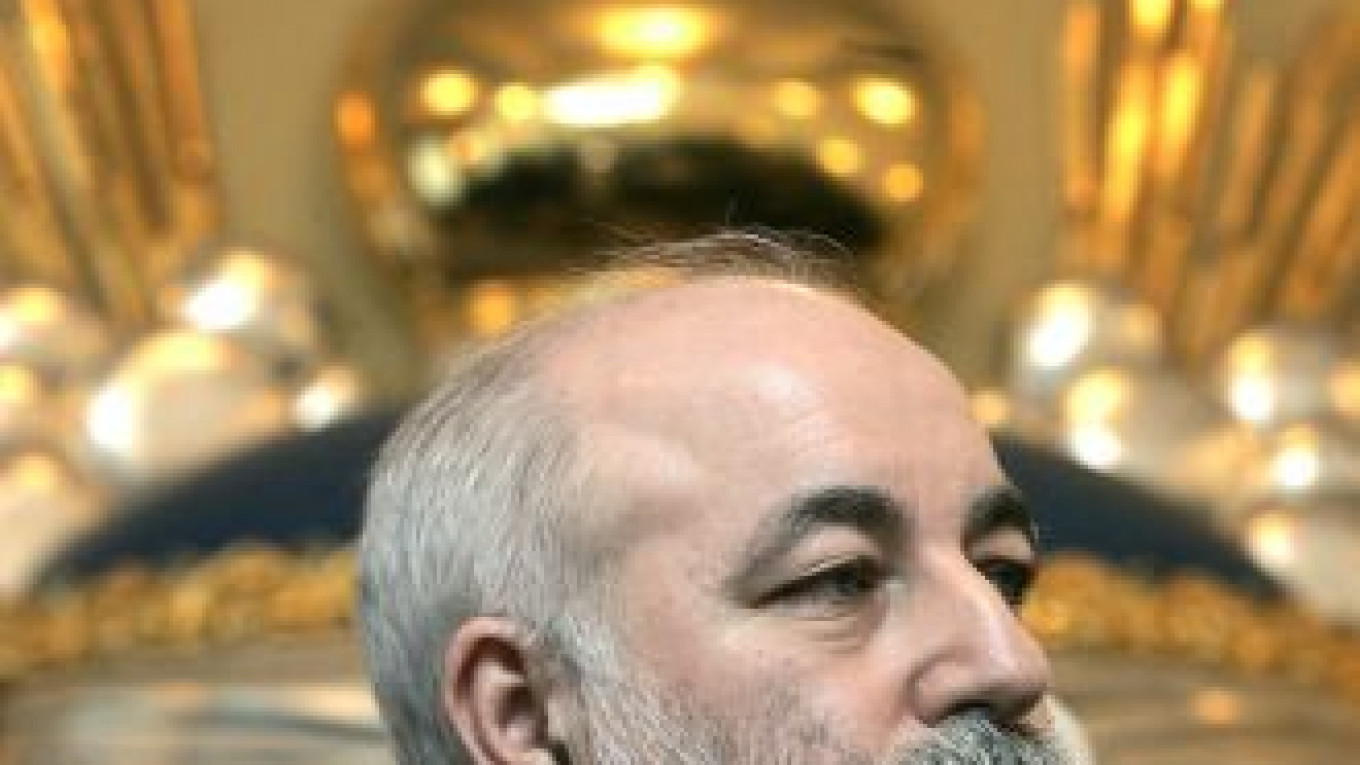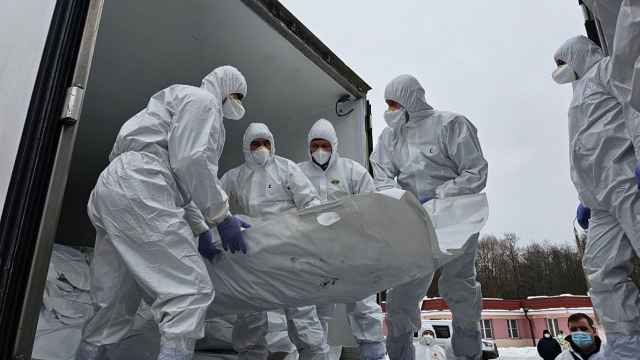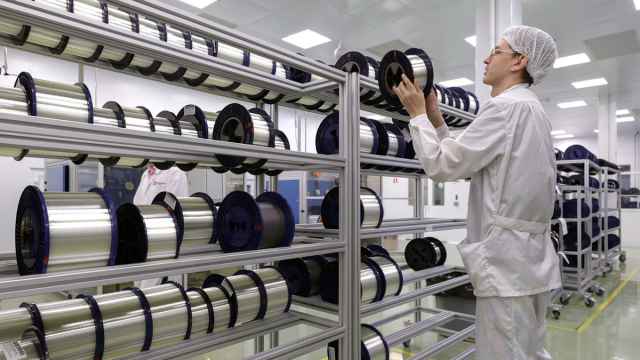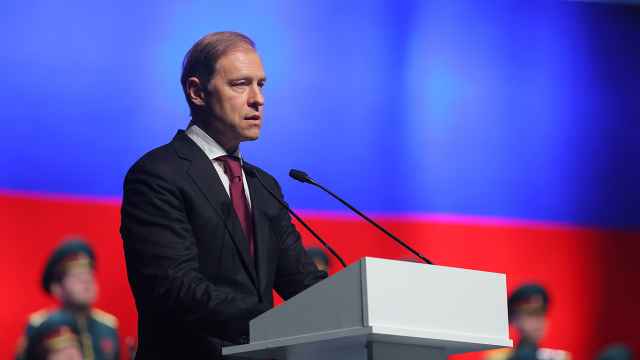A dramatic public clash arose between the billionaire owners of United Company RusAl on Tuesday after Viktor Vekselberg resigned as chairman of the company's board of directors, saying the aluminum giant is overloaded with debt and facing a "deep crisis" due to the improper actions of its management.
Vekselberg's resignation followed a long-term rift between the company's major shareholders and could result in the tycoon selling his stake in the aluminum maker.
"Due to the actions of its management … RusAl has, in my opinion, deteriorated from an international aluminum leader into a company overburdened with debt and entangled in numerous lawsuits and social conflicts," Vekselberg said in a letter to the company's board of directors late Monday. He also said he quit RusAl's board of directors.
Vekselberg, who had chaired RusAl since it was founded in 2007, said he disagreed with "a number of decisions" on the company's strategic development, production modernization as well as its social and human resources policies.
These decisions, he said, were made without obtaining the approval of the board of directors and violated the shareholders agreement.
"In view of this, I do not consider it appropriate to maintain my current position as the chairman and a director on RusAl's board," said Vekselberg, who is also chairman of Renova Group.
In a reciprocal move, RusAl accused Vekselberg of failing to "perform his functions as board chairman of a public company" over the last year.
The aluminum maker said Tuesday that Vekselberg hadn't attended board meetings since February 2011 and hadn't been present at the annual shareholders meeting in Hong Kong in June.
He also hadn't participated in any meetings with investors over the last year, the company said in an e-mailed statement.
Vekselberg, who holds 15.8 percent of the company jointly with his business partner Len Blavatnik, sided with fellow shareholder Mikhail Prokhorov, pushing for the sale of the 25 percent stake RusAl holds in Norilsk Nickel.
The move would allow RusAl to reduce its debt, which totaled $10.9 billion as of September, allowing the company to resume dividends halted in 2008 amid the crisis, analysts have said.
But RusAl chief executive Oleg Deripaska, who controls the aluminum giant, rejected the idea, saying the stake in the nickel company is a strategic investment.
The rift between the shareholders widened late last year when Vekselberg voted against a contract to sell aluminum to commodities trader Glencore, which holds 8.75 percent in RusAl.
Vekselberg and Blavatnik called for consideration of other options and the holding of a tender, but RusAl's board of directors approved the contract bypassing the shareholders agreement, which required other shareholders to support the veto.
Prokhorov, whose Onexim Group holds 17 percent in RusAl, pointed out earlier this month that he and Vekselberg disagreed with Deripaska's policy in the company but couldn't change the situation, since he holds a controlling stake in the company.
Vekselberg's decision to make the conflict public indicates that the sides have failed to come to any agreement over the sale of Norilsk stake, said Sergei Yezimov, portfolio adviser at Wermuth Asset Management.
Prokhorov and Vekselberg "seem to lack any leverage over Deripaska to force him to proceed with selling the stake," he said in e-mailed comments.
Although Vekselberg's resignation is unlikely to bring any changes to the company's operations, it might negatively affect RusAl's public image, since any discrepancies between major shareholders make investors wary, said Valentina Bogomolova, an analyst at UralSib Capital.
RusAl suspended trading in Hong Kong on Tuesday after sliding 1.3 percent at the opening. Euronext in Paris also suspended trading of RusAl's stock on the company's request.
The aluminum maker's Russian depositary receipts fell 3.4 percent in Moscow to close at 230.9 rubles ($8) Tuesday, underperforming the market, which rose 0.12 percent.
Investors are unclear on the consequences of Vekselberg's departure, Bogomolova said.
Yezimov said the clash between the shareholders could result in either Vekselberg or Prokhorov trying to sell their stakes in RusAl.
Vekselberg has been trying to sell his stake in the aluminum giant for about a year, a source close to RusAl's shareholders told The Moscow Times.
"Vekselberg wanted to shed his stake because he doesn't consider RusAl a manufacturing asset. He offered the stake to all the big shareholders," said the source, adding that the offer targeted primarily Glencore.
The stake was offered with a significant premium to the market price and Glencore rejected the offer, said the source, declining to be identified because the information is confidential.
Deripaska told journalists late Tuesday that his En+ holding, which owns 47.4 percent in RusAl, could consider buying the stake if Vekselberg tenders it.
A spokesman for Renova couldn't be reached for comment Tuesday, but he told Bloomberg that Vekselberg has no intention of selling the stake.
Glencore declined to comment Tuesday.
Prokhorov doesn't plan to exit RusAl, a spokesman for Onexim Group told RIA-Novosti on Tuesday.
Vekselberg's decision to resign "pre-empted anticipated consideration of this matter by the board," as the issue of changing the chairman had been repeatedly discussed at recent board meetings, RusAl said.
It would be impossible to oust Vekselberg as board chairman until he stepped down voluntarily, in line with the shareholders agreement signed at the establishment of RusAl, a person close to the tycoon told Interfax.
"In line with the best international practices of corporate governance, RusAl will endeavor to appoint an independent director chairman of the board, which will undoubtedly raise the efficiency of the board," RusAl said.
The company's board of directors will consider the appointment of a new chairman Friday.
A Message from The Moscow Times:
Dear readers,
We are facing unprecedented challenges. Russia's Prosecutor General's Office has designated The Moscow Times as an "undesirable" organization, criminalizing our work and putting our staff at risk of prosecution. This follows our earlier unjust labeling as a "foreign agent."
These actions are direct attempts to silence independent journalism in Russia. The authorities claim our work "discredits the decisions of the Russian leadership." We see things differently: we strive to provide accurate, unbiased reporting on Russia.
We, the journalists of The Moscow Times, refuse to be silenced. But to continue our work, we need your help.
Your support, no matter how small, makes a world of difference. If you can, please support us monthly starting from just $2. It's quick to set up, and every contribution makes a significant impact.
By supporting The Moscow Times, you're defending open, independent journalism in the face of repression. Thank you for standing with us.
Remind me later.






